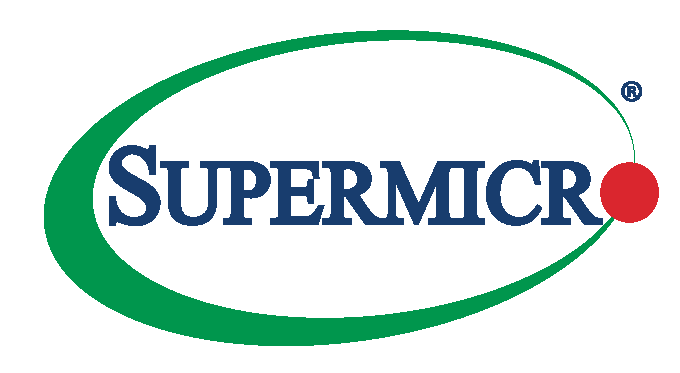Experimenting with Generative AI can be fun, but CEOs and corporate boards aren’t interested in fun. They want to see real business results—things like an enhanced customer experience, more innovative products, streamlined operations and lower TCO. And they want to see them now.
Getting GenAI to deliver these kinds of business results isn’t easy. A recent report from MIT finds that despite nearly $40 billion worth of enterprise investment in GenAI, 95% of the organizations are getting “zero return.”
That estimate is based on solid numbers. The MIT researchers reviewed over 300 AI projects, interviewed with more than 50 organizations, and surveyed some 150 senior leaders.
The latest forecasts aren’t much cheerier. Research firm Gartner this summer predicted that by the end of this year, nearly a third of all GenAI projects (30%) will be abandoned after the proof-of-concept stage. Gartner says the projects will be cut due to poor data quality, inadequate risk controls, escalating costs and unclear business value.
“After last year’s hype, executives are impatient to see returns on GenAI investments,” says Gartner analyst Rita Sallam. “Yet organizations are struggling to prove and realize value.”
That’s About to Change
Supermicro, AMD and startup PioVation have partnered to jointly develop a GenAI solution that offers a pre-validated, turnkey infrastructure for deploying large language models (LLMs). The benefits include lower deployment overhead, enhanced observability, and ensured control of sovereign data.
Partner PioVation is a developer of AI platforms for enterprises, government agencies, and small and midsize businesses. Its products can be run either on-premises or in PioVation’s cloud in Munich, Germany. The company, founded in 2024 by former AMD executive Mazda Sabony, has formed partnerships with several companies, including AMD and Supermicro.
The GenAI solution being offered by the three companies has been designed to scale all the way from compact on-prem clusters up to large-scale multi-tenant cloud environments. And its architecture integrates Supermicro rack-level systems, AMD Instinct GPUs, and PioVation’s agentic AI platform, PioSphere. The result, the companies say, is out-of-the box agentic AI at any scale.
Full Stack
The Supermicro-AMD-PioVation offering is a full-stack solution. An autonomous microservice chains LLM prompts, invokes domain-specific tools, and integrates seamlessly with your existing systems via REST (an architectural style for distributed hypermedia systems), gRPC (a remote procedure call framework), or event streams running on the pre-validated Supermicro server powered by AMD Instinct GPUs.
Another feature is the solution’s Model Context Protocol (MCP). It lets agents interact with external tools in a way that’s both modular and composable. The MCP also governs how tools are registered, discovered, invoked and composed dynamically at runtime. This includes input/output serialization, maintaining execution context, and enforcing consistency across tool chains. MCP also enables context-aware tool usage, making every agent interoperable, auditable and enterprise-ready from the start.
The solution is available in three topologies, each designed for different operational scales and use cases:
- MiniStack: For SMBs, pilots, research and the edge.
- EdgeCluster: For regulated sites, branches and other locations where high availability is required.
- Cloud Deployment: For cloud service providers (CSPs), enterprises and AI providers.
All three versions include a unified agent dashboard, role-based access control, and policy enforcement.
Business Benefits
The three partners haven’t forgotten about the need for GenAI to deliver real business results that can keep CEOs and corporate boards happy. To that end, the solution offers benefits that include:
- Turnkey deployment: PioSphere’s Cloud OS has been prevalidated on the Supermicro platform powered by AMD GPUs.
- Unified operations stack: A tightly integrated environment eliminates fragmented AI tooling.
- No-code agent development: A PioVation feature known as AgentStudio lets nontechnical users design, deploy and iterate AI agents using a no-code interface.
- Sovereign data control: Built-in controls support national and regional compliance frameworks, including Europe’s GDPR and the United States’ HIPAA.
- Multi-tenant scalability: An organization can create separate, secure environments for different business units or clients, yet they’ll all share a common infrastructure footprint.
- Integrated LLM operations and agent life-cycle management: Users can integrate any LLM published on the Hugging Face or Kaggle communities with one-click connectors. Other built-in features include RAG (retrieval augmented generation) pipelines and full agent life-cycle tools.
- Intelligent autoscaling: During workload spikes, the solution’s dynamic autoscaling ensures resource utilization, cost efficiency and seamless performance.
Put it all together, and you have a solution that goes far beyond mere experimentation. The three partners—Supermicro, AMD and PioVation—are serious about helping your GenAI projects deliver serious benefits for the business.
Do More:
- Read the solution brief: Out of the Box Agent-AI at Any Scale
- Get to know AMD Instinct GPUs



